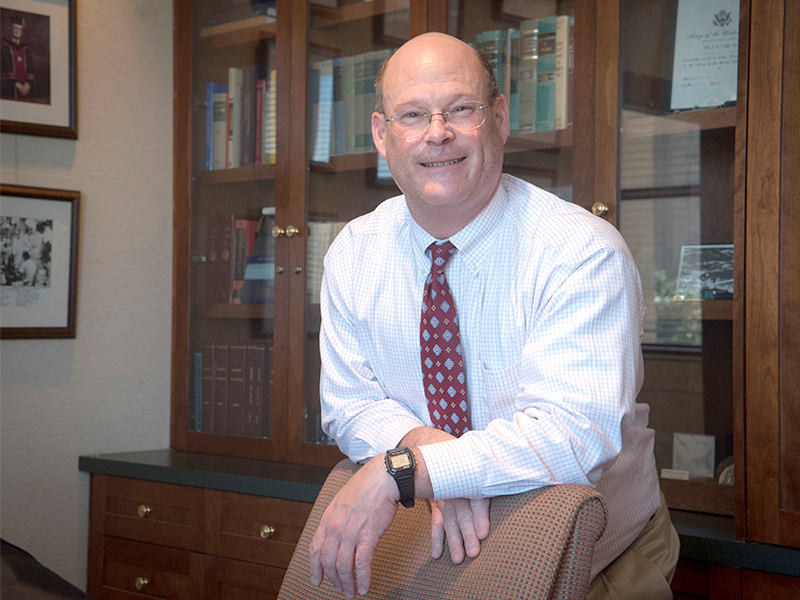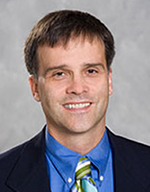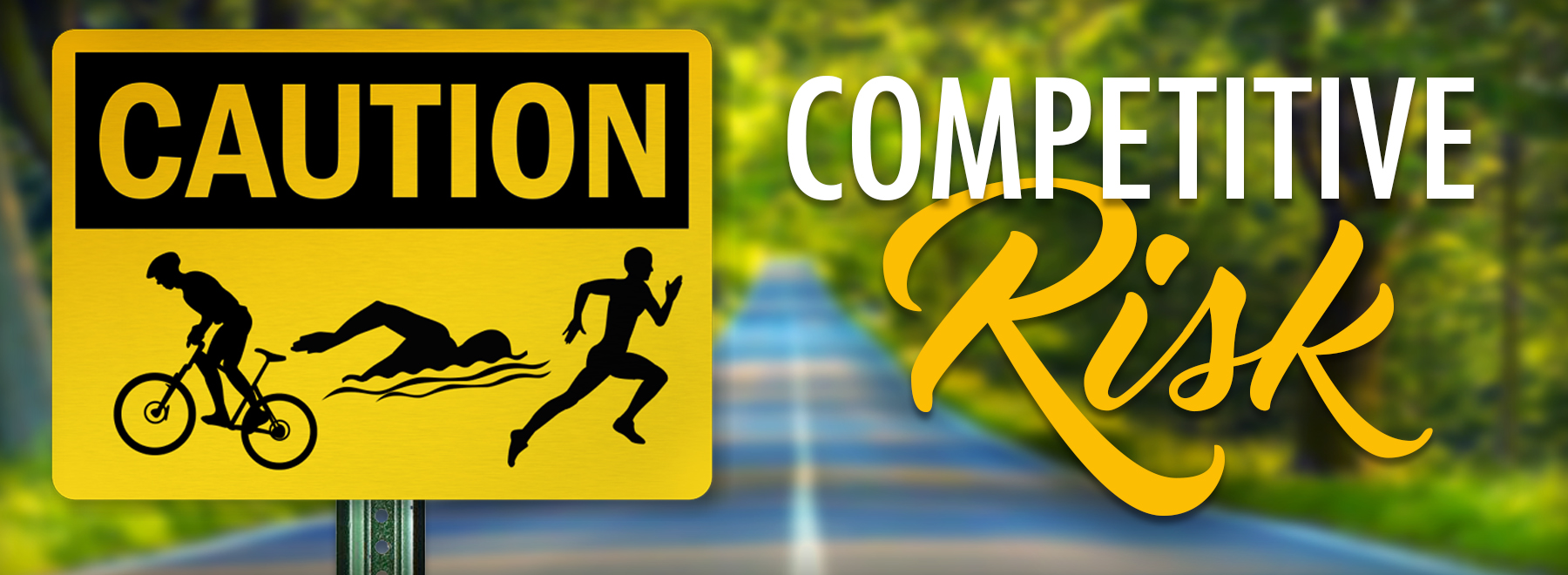Study indicates triathlon participants have greater odds of cardiac arrest
Published on Wednesday, November 1, 2017
By: Karen Bascom
NOTE: This article originally appeared in the November 2017 issue of CONSULT, UMMC's monthly electronic newsletter. To have CONSULT, and more stories like this, delivered directly to your inbox, click here to subscribe.
Interested in participating in a triathlon? You may want to visit your doctor first.
A recent study coauthored by a University of Mississippi Medical Center surgeon and triathlete found a small yet undeniable risk of cardiac arrest and death during races, particularly among men over 40.
But don’t let that stop you from running, swimming and biking – exercise is a critical part of good health.
The paper, published in the Annals of Internal Medicine, found that cardiac arrest – when the heart stops beating – or death occurred in about two in 100,000 triathlon participants.
It’s an uncommon occurrence, but with nearly 500,000 racers in the United States in 2015, tragedy does happen.

“It was surprising to us that seemingly healthy people die during these races,” said Dr. Larry Creswell, UMMC associate professor of surgery. “There is a small but real risk associated with triathlon, like any other exercise.”
Creswell started participating in triathlons in 2005 as a way to improve his health. This competitive sport consists of consecutive swimming, cycling and running portions. The races can last several hours, depending on course length.
For the study, Creswell and colleagues looked through 30 years of race records and news reports and consulted autopsy records to look for causes of death and pre-existing health conditions.

“The study’s strength lies in its ability to assess risk in different populations,” said Dr. Kevin Harris, lead author of the study and a cardiologist at Abbott Northwestern Hospital in Minneapolis.
From 2006-16, the study team found 135 cases of death or people revived after cardiac arrest. Depending on age, men were twice to more than six times more likely than women to die or go into cardiac arrest. Among men over 40, the death rate increased from six to 18 deaths per 100,000 racers through 10-year age cohorts.
The study team also found that two-thirds of the deaths occurred during the swimming portion of the triathlon, which usually takes the first 20 percent of the triathlete’s race time, Creswell said.
“Open water swimming is a challenge for rescue,” Creswell said. It’s more difficult to spot a swimmer in danger or to reach them quickly in comparison to a collapsed runner or cycler, he said.
There might be a physiological reason as well
Autonomic conflict occurs when two parts of the nervous system act against each other. The sympathetic system controls the “fight or flight” response. The exhilaration of the race and the inadvertent jostling from other racers may excite the system, Creswell said.
Meanwhile, the parasympathetic system manages involuntary actions, like breathing and temperature control. Cold conditions and water entering the mouth can trigger a reaction.
However, these systems have opposite effects on the heart. The sympathetic raises heart rate; the parasympathetic lowers it.
Like hitting the gas and the brakes in a car at the same time, some researchers think autonomic conflict can cause the heart to stop altogether.
The study authors can’t prove autonomic conflict caused the death of any of the deceased athletes, since autopsies cannot detect this kind of event. However, among those with available autopsy results, 44 percent showed signs of cardiovascular disease, including coronary artery disease or myopathy. This could have made these racers vulnerable to cardiac events.
Creswell said because of this, potential triathletes “need to be honest when reporting symptoms of heart disease,” such as chest pains or difficulty breathing. “Participants should give the associated risk their due consideration and work with health care professionals.”
Creswell visited his primary care doctor before his first triathlon and encourages others to do the same, particularly if they have any concerns about their health.
“These races are healthy outlets for exercise, but check with your physician first,” he said.
If the visit turns up signs of heart disease, Creswell and Harris said potential triathletes might need further evaluation, like a stress test or electrocardiogram.
Despite the risk, they emphasize regular exercise – swimming, running, cycling or any other form – is essential for good health.
“The heart is a muscle,” Harris said. “And like any other muscle, exercise strengthens it. Regular exercise improves blood pressure, weight and lipid levels.”
“We don’t want people to go back to the couch,” Creswell said. “We don’t want to discourage anyone from participating.”



